Search Images
Browse Content (p. 1698)
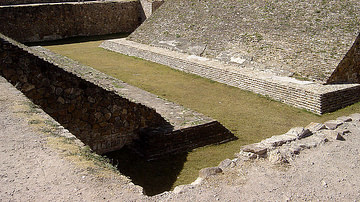
Image
Ball Court, Monte Alban
The Classic Period ball court of Monte Alban (150-650 CE). The ball game was popular across Mesoamerica and the objective was to put a rubber ball through a hoop placed high on each wall. Any part of the body could be used except the hands.
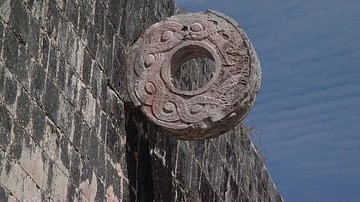
Image
Goal, Ball Court of Chichen Itza
One of the goals of the ball court at the Maya-Toltec city of Chichen Itza. The objective of the ball game, popular across Mesoamerica, was to strike a rubber ball through the hoop using any part of the body except the hands.
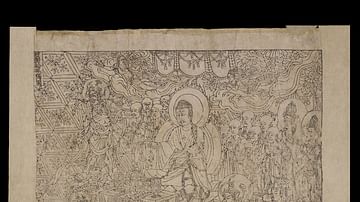
Image
Chinese Diamond Sutra
The Buddhist text known as the Diamond Sutra is believed to be the oldest surviving printed book in the world, dated to 868 CE and written in Chinese. This work is one of the most important works of the Buddhist tradition.
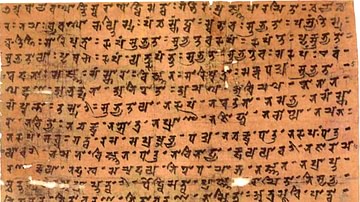
Image
Copy of the Heart Sutra
A Sanskrit manuscript copy of the Heart Sutra at the Bibliothèque Nationale de France.

Image
Pyramid B, Tollan
Pyramid B of Tollan in central Mexico, the capital of the Toltec civilization (10-12th century CE). The five-tiered pyramid is topped by stone warrior columns which would have once supported a roof structure. In the foreground stand the ruins...
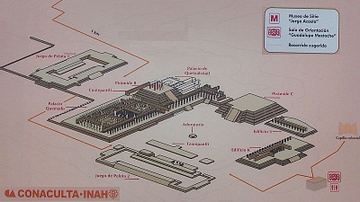
Image
Tollan (Tula)
A diagram of the sacred precinct at Tollan (Tula), the capital of the Toltec civilization (10-12th century CE) in Mesoamerica. The site includes two step pyramids, colonnades, a palace structure and two ball-courts.
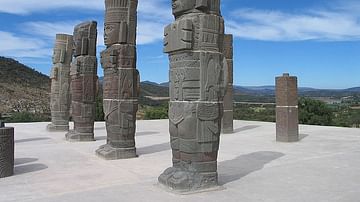
Image
Toltec Warrior Columns
The columns atop Pyramid B at the Toltec capital of Tollan (Tula) which once supported a roof structure. They are each composed of four column drums and represent Toltec warriors ready for battle wearing their customary headdress and butterfly...

Image
Tibetan Mandala, Sera Monastery
Tibetan Mandala painted in the Sera Monastery, about 2 km away from Lhasa, Tibet.
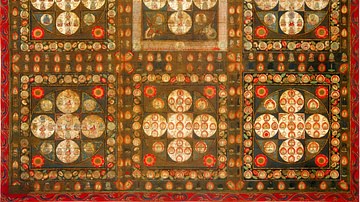
Image
Mandala of the Diamond World
"The Mandala of the Diamond World," also known as "The Diamond Realm Mandala."
Japanese hanging scroll, Kamakura period, 13th-14th century CE.
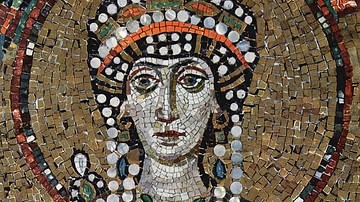
Image
Theodora I
Theodora: Detail from the 6th-century mosaic "Empress Theodora and Her Court" in the Basilica of San Vitale in Ravenna.